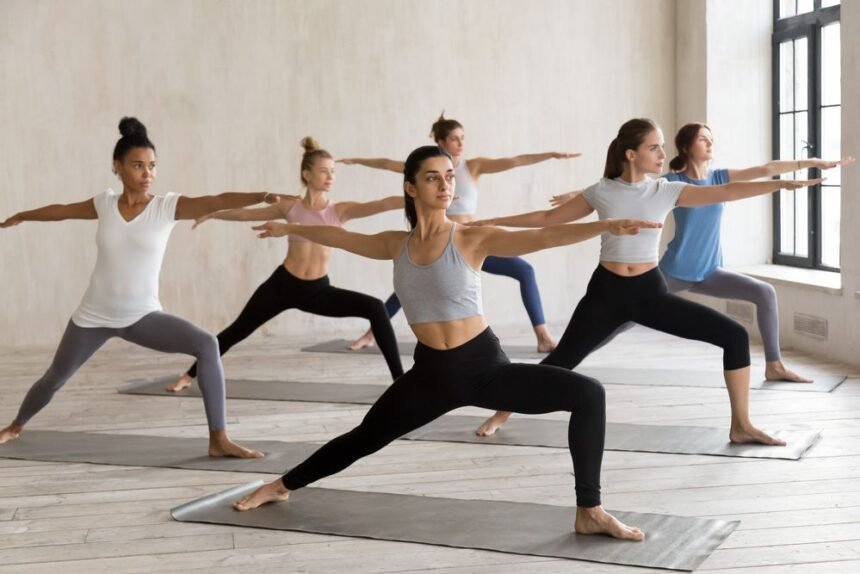“Why exercise? Why should I make fitness a part of my life?”
- #1 Weight Management
- #2 Combats Health Conditions and Chronic Diseases
- #3 Strengthens Bones and Muscles
- #4 Improves Mental Health and Reduces Stress
- #5 Increase in Energy Levels
- #6 Better Sleep Quality
- #7 Younger, Healthier Skin
- #8 Relief from Physical Pains
- #9 Keeps Your Mind Sharp and Boosts Brain Health
- #10 Manage Addictions
- #11 You Age Slower and Live Longer
- #12 Improves Self-Confidence and Makes You Social
- #13 Improves Sexual Health
Heart disease is one of the leading causes of death in our country, often related to a sedentary lifestyle. Inactivity is a “silent killer”. If you have a sedentary lifestyle, there will be a decline in your body’s ability to function. Evidence is emerging that long periods of sitting or lying down are bad for your health. The health benefits of regular exercise and physical activity are hard to ignore. Everyone benefits from exercise, regardless of age or gender.
Need more convincing to get moving? Here are 13 reasons that make the physical fitness culture something worth embracing in your life.
#1 Weight Management
In order to understand the effects of exercise on weight loss, it is important to understand the connection between exercise and energy expenditure. Regular exercise will increase your metabolic rate and help you burn more calories, reach your desired weight goal, or maintain your ideal weight. Regular exercise helps to optimize your metabolic rate, which makes weight management easy.
#2 Combats Health Conditions and Chronic Diseases
Heart disease and stroke are two of the leading causes of death. A regular exercise regimen of moderate intensity can put you at a lower risk for these diseases. Regular physical activity can also help reduce your blood pressure and improve your cholesterol levels. Exercise boosts high-density lipoprotein cholesterol, the “good” cholesterol, and decreases unhealthy triglycerides, which reduces the risk of developing cardiovascular diseases.
Inflammation may be an underlying cause of many diseases and disorders in both body and brain. Exercise reduces many inflammatory markers, such as C-reactive protein and interleukin-6, which are linked to several diseases.
Exercise helps your pancreas to work better and makes your cells more sensitive to insulin. This improves the way your body deals with sugar and helps prevent or delay the onset of type 2 diabetes.
#3 Strengthens Bones and Muscles
Exercise plays an important role in building strong muscles and bones. Doing muscle-strengthening activities such as weight training can help increase or maintain muscle mass and strength. As age increases, an individual tends to lose muscle mass, which can lead to a slowdown of metabolism and an increased rate of injuries. Staying physically active helps reduce this muscle loss. Regular exercise can also slow the loss of bone density that comes with age. Among older individuals, regular physical activity also reduces the risk of falling and related injuries
#4 Improves Mental Health and Reduces Stress
Stress is a daily part of life. One of the most important benefits of exercise is stress relief. Regular physical activity can help you manage mental stress. Exercise increases the concentrations of norepinephrine, a chemical that can mitigate your brain’s response to stress. Regular physical activity can improve your mood and reduce the likelihood of depression and anxiety. It also promotes the release of a mood-lifting brain chemical called serotonin and the release of endorphins that usually leave you feeling happier and more relaxed. A little physical activity will make you a little happier every day.
#5 Increase in Energy Levels
Exercising daily can help you boost your energy levels. A good exercise session causes a rush of hormones that act as a significant energy booster and helps fight fatigue to keep you more active. Exercise delivers nutrients and oxygen to your tissues and helps your cardiovascular system to function more efficiently. And when your heart and lungs health improve, you have more energy to carry out day-to-day work.
#6 Better Sleep Quality
Exercise can help you fall asleep faster and stay asleep longer, as it fights insomnia by ensuring you are sufficiently tired by bedtime. Exercise also helps to regulate your body’s circadian rhythm. Moreover, the elevated body temperature that occurs during physical activity is thought to improve sleep quality by helping it drop during sleep.
#7 Younger, Healthier Skin
Exercise stimulates blood flow to the skin, which helps deliver more oxygen and nutrients which in turn helps improve skin health. Sweating, which is increased by exercise, allows the body to excrete wastes via the skin’s surface. Exercise also benefits your skin by triggering the production of antioxidants. These antioxidants repair damage to the skin cells and improve skin health.
#8 Relief from Physical Pains
Chronic pain can be debilitating, but exercise can help reduce it. Several studies show that exercise can help control pain associated with various health conditions, including chronic lower back pain, fibromyalgia, and chronic soft tissue injury. The right type of exercise can be a good form of physical therapy for stubborn aches or long-term injuries.
#9 Keeps Your Mind Sharp and Boosts Brain Health
Working up a sweat increases the production of cells in the hippocampus, the part of the brain responsible for memory and learning. Exercise also stimulates blood flow to the brain, allowing it to get more oxygen to function better. It can also stimulate the production of hormones that can enhance the growth of brain cells. Exercise has also been shown to reduce changes in the brain that can cause Alzheimer’s disease and schizophrenia.
#10 Manage Addictions
Addictions can be of any form. It may be food, nicotine, drugs, or alcohol. The brain releases certain chemicals in response to any form of pleasure that comes from addiction. Exercise, especially running, releases many of the same chemicals that release with addiction. The term ‘runner’s high’ is used to describe the moment when running makes you feel euphoric and exhilarated. Exercise helps people while they recover from addiction. Physical activity can distract people from cravings when they are trying to quit smoking.
#11 You Age Slower and Live Longer
Studies have shown that moderate-intensity exercise may slow down the ageing of cells – it was found that exercise increased levels of a molecule that protects telomeres, ultimately slowing how quickly they shorten over time., thus slowing the ageing process at the cellular level.
Exercise has been shown to lengthen lifespan by as much as five years. Research has shown that physical activity can reduce your risk of dying early from leading causes of death, such as heart disease and some cancers.
#12 Improves Self-Confidence and Makes You Social
Physical fitness can boost self-esteem and improve a positive self-image. Exercise can quickly elevate a person’s perception of their attractiveness and make them feel more confident.
Physical activity can also help you connect with family or friends in a fun social setting. Whether you play a game like tennis or join a gym, or even join a Yoga class, exercising can be incredibly social and entertaining. These can be great ways to meet new people.
#13 Improves Sexual Health
Exercise has been proven to boost sex drive. Regular exercise may lower the risk of erectile dysfunction (ED) in men. For those who already have ED, exercise may help improve their sexual function. In women, exercise may increase sexual arousal. Exercise also improves blood circulation and flexibility, boosting one’s libido that enhances sexual performance.







